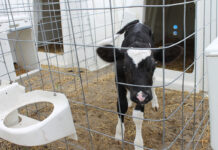LANSING, Mich. — The Michigan Department of Agriculture and Rural Development has lifted the statewide ban on poultry exhibitions.
The department implemented the ban as a precautionary measure in June 2015 in response to the Highly Pathogenic Avian Influenza outbreak happening across the U.S.
The department evaluated the disease risk and current national status and decided it’s appropriate to lift the ban on poultry exhibitions. The department continues to monitor the national HPAI situation and may reinstate the poultry exhibition ban if the disease re-emerges.
Points to consider
Although not limited to the following situations, these are some specific situations in which the department would consider reinstating the ban:
Detection of HPAI in a wild bird in the Mississippi flyway; detection of HPAI in domestic flocks in states surrounding Michigan or nearby areas of Canada; and cases of HPAI in wild or domestic birds in other flyways, if the cases appear to be spreading.
Related: Ohio lifts poultry exhibit ban.
The ban prevented the commingling of birds from different locations, including exhibitions, swap meets, petting zoos at fairs, game bird and waterfowl fair displays, and Miracle of Life exhibits.
The department partnered with Michigan State University Extension 4-H, Michigan Association of Fairs and Exhibitions, and other partners to inform youth of the announcement and identify ways to engage Michigan’s youth poultry exhibitors and allow them to showcase their knowledge and experience.
Dr. James Averill, Michigan’s state veterinarian, said the MSU Extension and youth leaders did a good job of showcasing their knowledge of poultry projects — even without live birds.
“Their partnership was invaluable in protecting all of Michigan’s poultry flocks statewide from this devastating disease,” he said.
Concern remains
Concern for the possibility of a return of HPAI in the U.S still remains. Generally, heightened findings of influenza viruses in wild birds will begin in winter and go through spring as birds comingle and migrate south, and cold weather helps keep the virus alive.
The last case of HPAI in domestic birds was documented in June; however, the domestic population is always at risk of influenza infection from wild waterfowl which may spread the virus in their droppings.
The department continues to encourage poultry owners to practice proper biosecurity and contact their local veterinarian if they have sick birds. However, if a flock is experiencing severe illness or multiple death losses, contact MDARD at 800-292-3939 or for after-hours emergencies call 517-373-0440.










